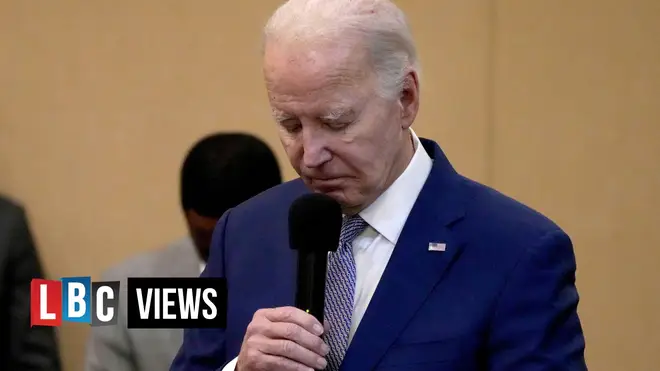
Nick Abbot 10pm - 1am
29 January 2024, 19:37 | Updated: 30 January 2024, 07:28

Future historians might remember Sunday, January 28, 2024, as the day World War Three started.
It happened overnight at a US military base in the arid desert of northeast Jordan, where the borders of Jordan, Iraq and Syria meet.
American soldiers were asleep in their tents. Suddenly, all hell broke loose and drones were firing at them. Three soldiers perished. At least 34 were wounded.
The vicious attack was executed by radical militants in Iraq and Syria backed by Iran.
In response, US president Joe Biden has pledged that “we will hold all those responsible to account”.
Biden’s likely opponent at the presidential election next November—former president Donald Trump—did not mince his words, blaming “this brazen attack on the United States” on “Joe Biden’s weakness and surrender.” He concluded" “We are on the brink of World War 3.”
This is typical Trumpian hyperbole, but this time the Republican might not be exaggerating. The death of American soldiers changes the geopolitical game.
Ever since Hamas’s attack on Israel on October 7, Iranian-backed militias in the Middle East have been targeting American bases with drones. In a little more than 100 days, there have been a whopping 160 attacks. Almost all were unsuccessful.
But all it takes is one.
Now three US service members are in body bags, about to be flown back home. It’s the worst nightmare of every American president.
“It is a very dangerous escalation,” said John Brennan, the former CIA director, adding “there are going to be consequences.”
It now falls on Biden to decide what those consequences look like. He must act forcefully and retaliate.
The president needs to send a message to the militias—as well as their backers in Tehran—that the US will not stand for chaos. Only this can prevent further attacks.
But Biden must calibrate his response carefully. As analysts have repeatedly warned, the Middle East is a “tinderbox”.
In truth, it’s even worse than that. The Middle East is a stack of dynamite ready to blow up.
There are several interconnected conflicts underway there. In Gaza, Israeli forces are fighting Hamas.
They’ve also been exchanging fire with Hezbollah, another Iranian proxy, at the Israeli-Lebanese border.
Read more: British warships do not have missiles to take out Houthi rebel bases in latest armed forces blow
Off the coast of Yemen, the Houthis, also an Iranian proxy, have been raiding commercial ships and disrupting international trade.
Biden is keenly aware of how dangerous the situation is. That’s why he has already stipulated that the US retaliation to last night’s onslaught will come “at a time and in a manner [of] our choosing.” The president is buying himself time to make a cool-headed decision.
As Brennan said: “The big question for the White House is whether or not this was an Iranian-supported group or whether it was an Iranian-directed attack.”
In other words, whether Tehran explicitly ordered the latest strikes on American troops. If it turns out that it did, then the US could well hit military targets inside Iran.
At this stage, no option should be off the table. But whatever option Biden does choose, it must meet two criteria.
First, it must deter Iran and its proxies once and for all. Second, it must fall short of triggering all-out war.
Biden faces an incredibly tough call. To make it even tougher, he’s heading into a cut-throat election year.
Trump is leading in the polls. And for months now, Republicans have been depicting Biden as a bumbling leader who cannot keep Americans safe. Yesterday’s deadly attack has only given them more ammunition.
Biden knows full well that he has to look tough now. If he doesn’t, he could lose the election.
All these considerations are surely weighing on the president’s mind.
Joe Biden has a lifetime of experience in world politics. He served as a US senator for 36 years and as vice-president for eight years. He’s made hundreds of thousands of decisions. But his next might just be the most important one.
LBC Views provides a platform for diverse opinions on current affairs and matters of public interest. The views expressed are those of the authors and do not necessarily reflect the official LBC position. To contact us email views@lbc.co.uk